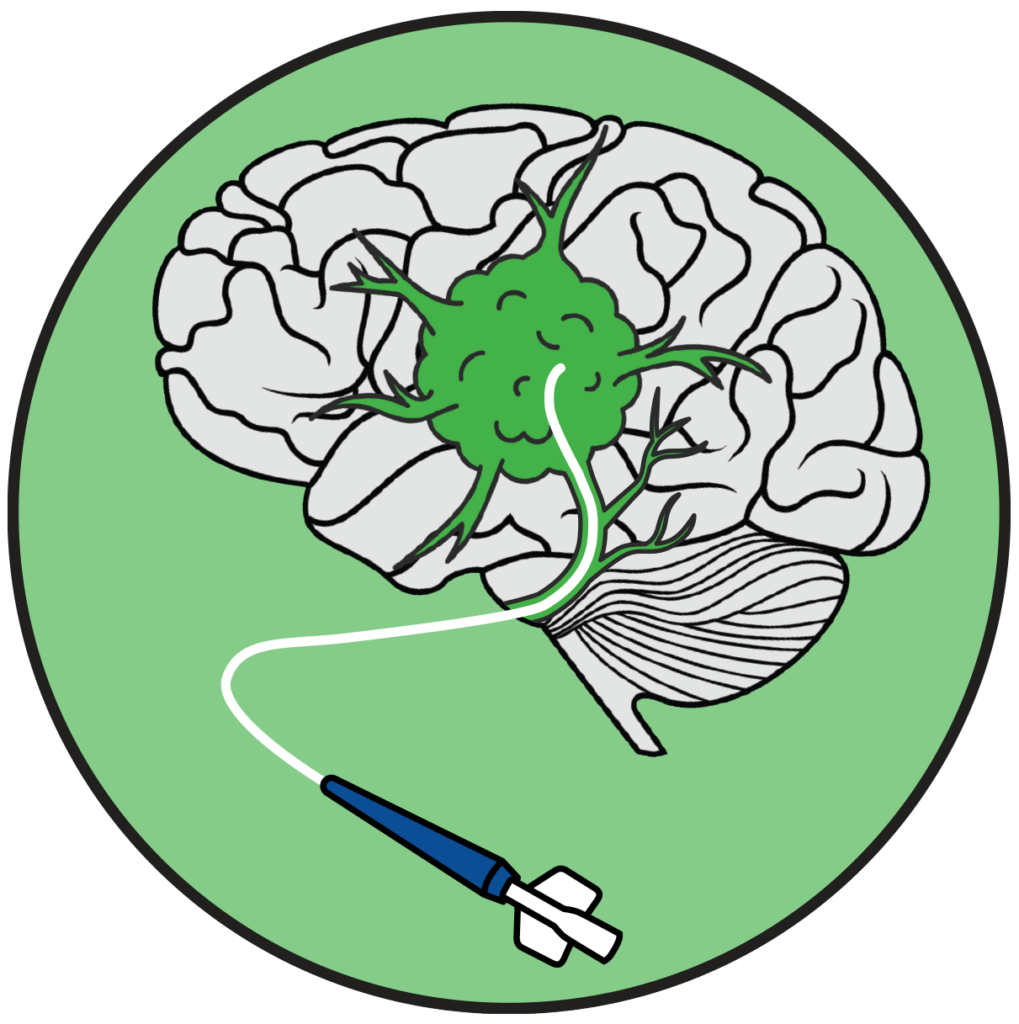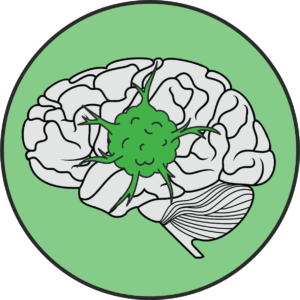Temsirolimus in Recurrent High-Grade Glioma
About the high-grade glioma clinical trial
The Ivy Brain Tumor Center at Barrow Neurological Institute, a nonprofit translational research program, is conducting a Phase 0 dose-escalation study using superselective intra-arterial cerebral infusion of temsirolimus for the treatment of recurrent high-grade glioma.
Superselective intra-arterial cerebral infusion (SIACI) is a novel technique that can deliver a highly-concentrated dose of experimental drug directly to the brain tumor while minimizing systemic side effects.
The primary objective of this high-grade glioma clinical trial is to measure the effectiveness of this technique in bypassing the blood-brain barrier (BBB) to deliver a high concentration of a drug directly to the tumor. The BBB is the brain’s built-in defense mechanism. Its purpose is to keep drugs and potentially harmful toxins out, but in doing so, drugs meant to attack brain tumors cannot get in.
Temsirolimus is a drug approved by the U.S. Food and Drug Administration (FDA) to treat advanced renal cell carcinoma, a type of cancer that starts in the kidney. The drug works by blocking the action of an enzyme called mTOR that helps cancer cells grow and divide. This protein is often activated in high-grade glioma.
In this study, three dose levels of temsirolimus will be administered by SIACI and examined to generate information that will aid in the design of larger trials. Successful delivery of the drug to the intended target could lead to a revolutionary new approach to treat brain tumors.
High-Grade Glioma Clinical Trial Details
Recruiting
Temsirolimus
Recurrent High-Grade Glioma (WHO grade 3 or 4)
12 Participants
Ivy Brain Tumor Center

You may be eligible if:
- You are 18 years or older.
- You have a histologically diagnosed high-grade glioma (WHO grade 3 or 4) in the frontal or temporal lobes, and a biopsy confirmed a first recurrence.
- You received previous first-line treatment with standard-of-care radiotherapy and temozolomide.
What to expect from this high-grade glioma clinical trial

The study drug is administered to the patient using a technique called superselective intra-arterial cerebral infusion (SIACI). SIACI involves a tiny catheter threaded through an artery in the wrist to the brain. A concentrated dose of the drug is then released directly into the blood vessels feeding the tumor.

Within hours of drug administration, the patient will have a CT scan to assess blood-brain barrier disruption and undergo a planned surgery to remove the tumor.

During surgery, tumor tissue samples are collected so our team of experts can assess the drug’s ability to penetrate the tumor.

The patient will follow standard-of-care procedures for monitoring post-surgery and then be discharged. They will return to the clinic for post-treatment assessments to monitor the safety of the treatment and then be contacted every three months for up to 12 months.
Am I Eligible for a Clinical Trial?
Submit a free trial screening request today to learn if you may qualify for this study or any others available at our center.



